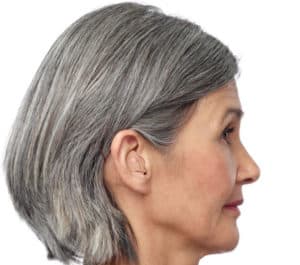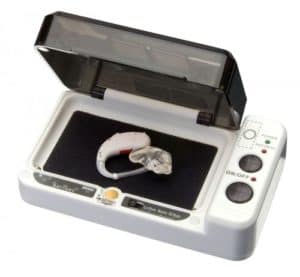
How Long Do Hearing Aids Last?
A Sound Investment
If you have been prescribed hearing aids, there is no question that they are an essential purchase. Hearing aids bring countless medical and socio-emotional benefits to people who are experiencing hearing loss. They support brain function and help ensure your safety and security. Hearing aids have the power to reconnect people to their loved ones and their passions.
Though hearing loss may at first be a disorienting experience, hearing aids are equipped with advanced technology to improve your hearing. As with all big purchases, it is important to take the time to select hearing aids that meet your specific hearing needs and lifestyle. You will find that with the use of hearing aids, not only are sounds richer – but your life too. And that is a sound investment!
A General Lifespan of Hearing Aids
Hearing aids have undergone something of a revolution in the past decade. With trends parallel to advancements in digital technology, hearing aids are packed with extraordinary features to treat a range of hearing loss.
But still, it is important to keep in mind that for all of their advancements, hearing aids are still sensitive, sophisticated electronic devices that require a lot of care and attention. Additionally, their daily use subjects them to much wear-and-tear. Though they are certainly powerhouses of digital technology, hearing aids – as with all of our personal electronic devices – do not last forever.
On average, hearing aids have an estimated lifespan of three to seven years. Depending on the style, some may last longer. In-the-ear hearing aids tend to last four to five years, while behind-the-ear hearing aids have a five to six year lifespan. This is due to the construction of the hearing aid, and the way they are worn.
![]()
In-the-hear hearing aids are exposed to more moisture and higher temperatures due to the way they are worn. As a result, they may experience more exposure to sweat and earwax. Behind-the-ear hearing aids are housed in a compartment that sits on your ear, keeping it away from the moisture of everyday wear.

At the same time, the lifespan of hearing aids is also dependent on how they fit into your life. If your hearing has changed, the performance of the hearing aid may not have the power to accommodate your changing hearing abilities.
Factors that Influence Hearing Aid Longevity
Hearing Aid Construction and Manufacturing
If, when you think of hearing aids, you see those bulky, flesh-toned devices – think again! Hearing aids these days are miniature computers with powerful processing platforms, designed with discretion and ergonomics in mind. They are small, discreet, and are made of durable materials that protect the sensitive electronics inside. Hearing aids may be constructed with silicon, plastic, metal, and are covered in nano-coating, which fights moisture and debris. They withstand higher levels of impact as well, but, nothing is impenetrable. Contemporary hearing aids are certainly hardier than their predecessors, but over time, and with daily wear, hearing aids may experience structural issues.
If you begin to see cracks in the construction, or if you are finding that moisture and/or dust is entering more easily, it may be time to see us at a My Hearing Centers location to determine whether you need to update your hearing aids.
Hearing Aid Maintenance
Hearing aids are a workhorse of a device: for their small size, they are incredibly powerful and provide consistent power day in and out. Because they are worn daily, they are exposed regularly to sweat, skin oil, moisture, dust, and the elements of all kinds. When you first receive your hearing aids, we will instruct you on how to provide daily maintenance to ensure the longevity of your hearing aids. The best practice is to clean your hearing aids daily.
When you are not wearing your hearing aids, you should make sure that they are in a secure, dry space. Consider using a dehumidifying unit over night to dry out any moisture accumulated during the day inside the different chambers of the hearing aid.

If you live with pets or small children, it is important to store your hearing aids in a safe place, as they may present choking hazards – not to mention the damage that could happen to the hearing aids. When traveling be sure to pack a safe storage option for your hearing aids – perhaps a padded bag or structurally sound box – so they do not get crushed in your baggage.
When you first got your hearing aids, your hearing specialist probably gave you some pointers on simple daily maintenance for your devices. If your hearing aids have been dropped or exposed to water or the elements, you’ll want to come visit us at one of our My Hearing Centers locations to make sure that there is no damage. Additionally, it is important to bring your hearing aids in for a professional cleaning, every three to four months. Even if you follow the daily maintenance steps provided by your hearing professional, there are small and intricate bits of the hearing aid that are difficult to clean on your own. Bring your hearing aids in for a professional cleaning to ensure that they continue to serve you well.
Individual Hearing Needs
Like hearing aid technology, your hearing abilities will continue to change. This is a natural process of hearing. When you are fitted for your hearing aids, we work to ensure that the best combination of features available will meet your specific hearing needs, tailored to meet your lifestyle and activities. Over time as you hearing abilities change, you’ll begin to notice that sounds are not as clear, or that you are struggling to hear when you did not before with the same hearing aids. Additionally, if your lifestyle has changed – let’s say you’ve gotten a new job or taken up a new hobby – you may find that your hearing aids no longer suffice in their abilities to meet your hearing needs in these new scenarios. These changes all affect the longevity of your current hearing aids. In the meantime, hearing aid manufacturers continue to develop innovative solutions. Hearing specialists recommend an annual hearing test to stay abreast of any changes in your hearing. If you have found that your hearing or lifestyle has changed, we will work with you to find a new hearing aid to fit your needs.
Live your life to the fullest! Call (877) 330-2920 to schedule an appointment at one of our locations today!
